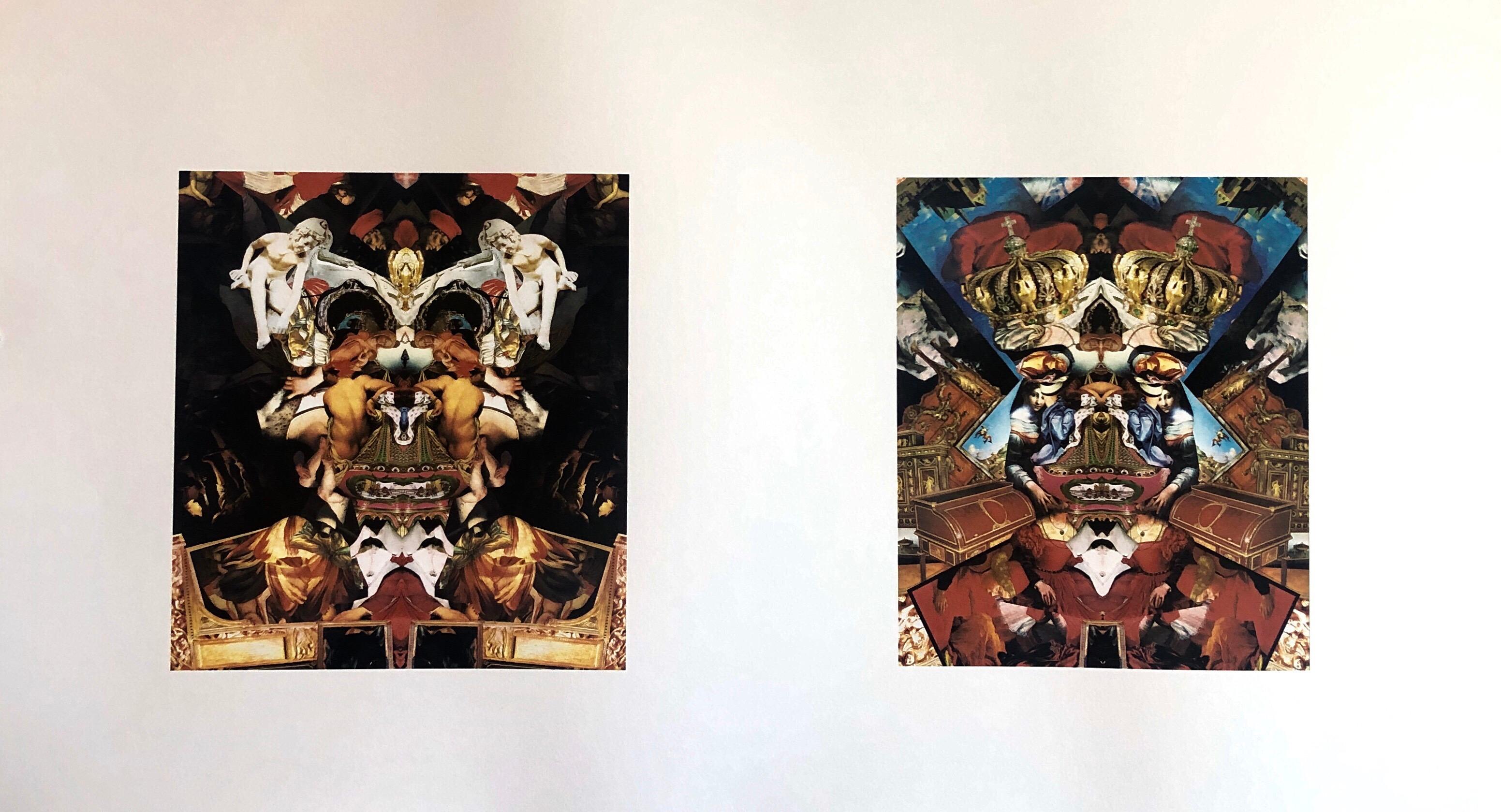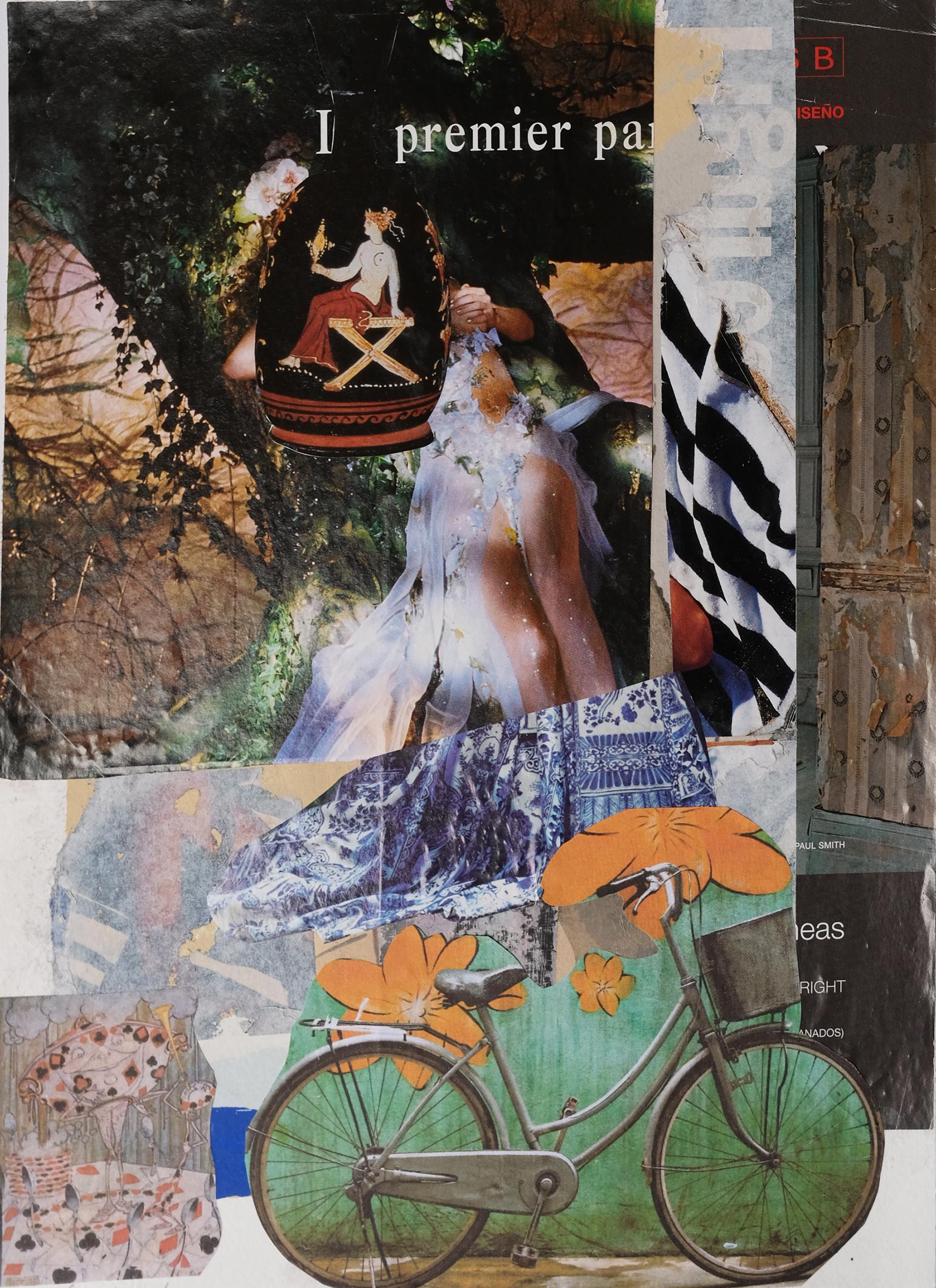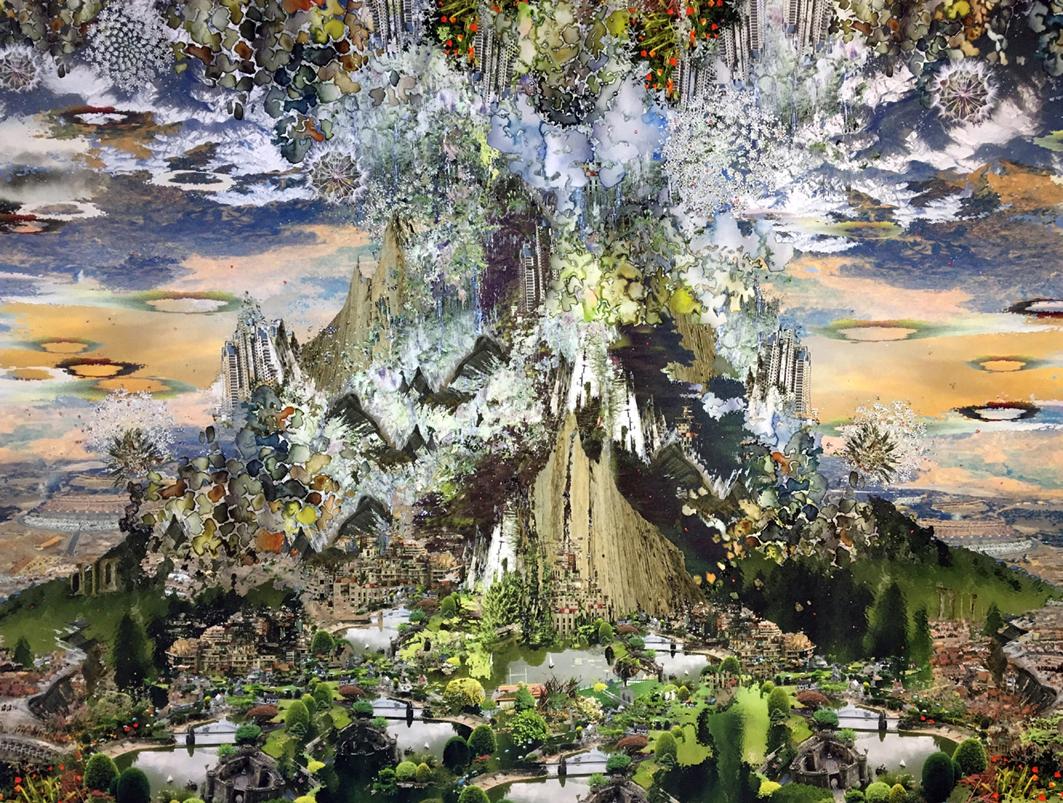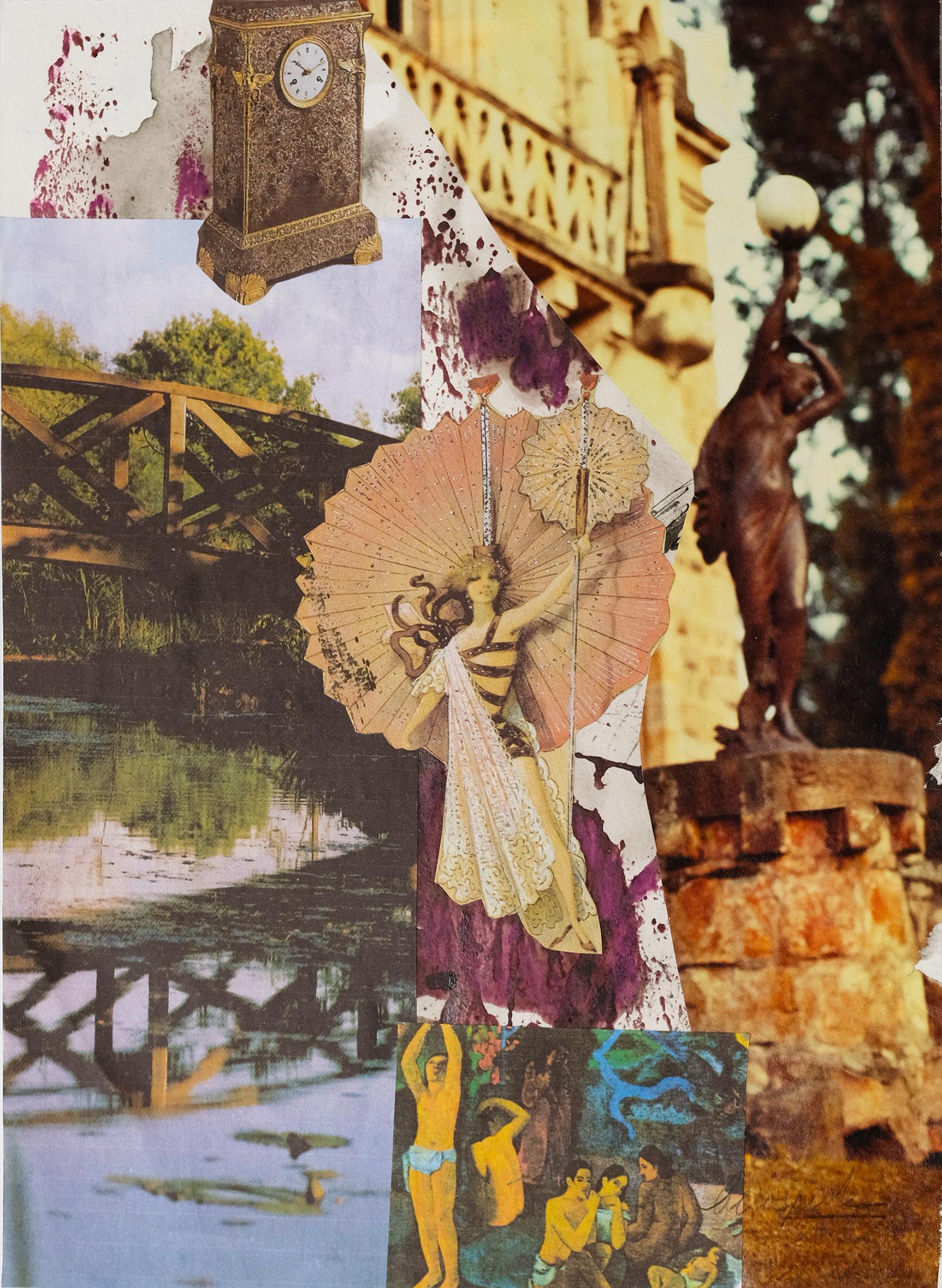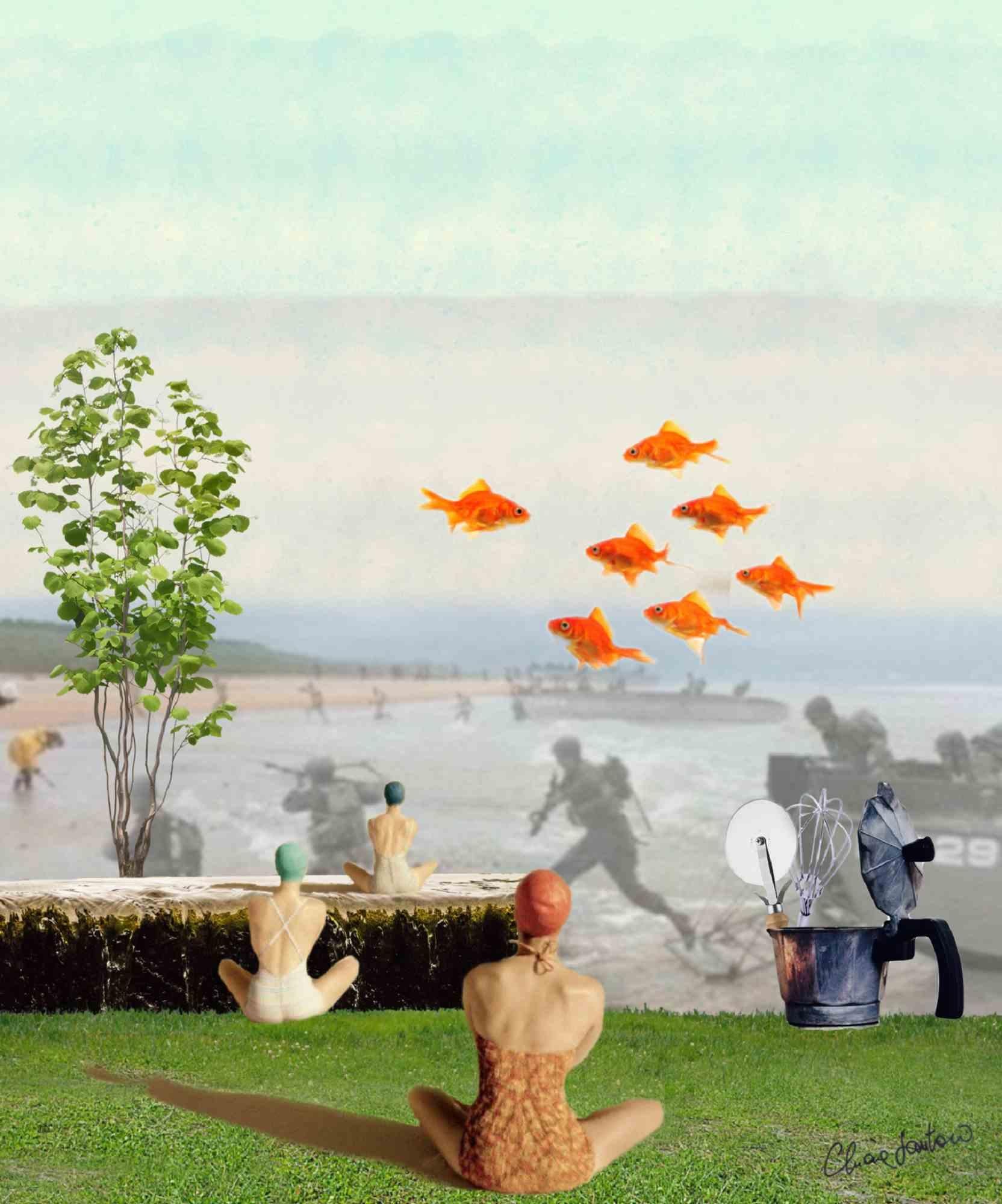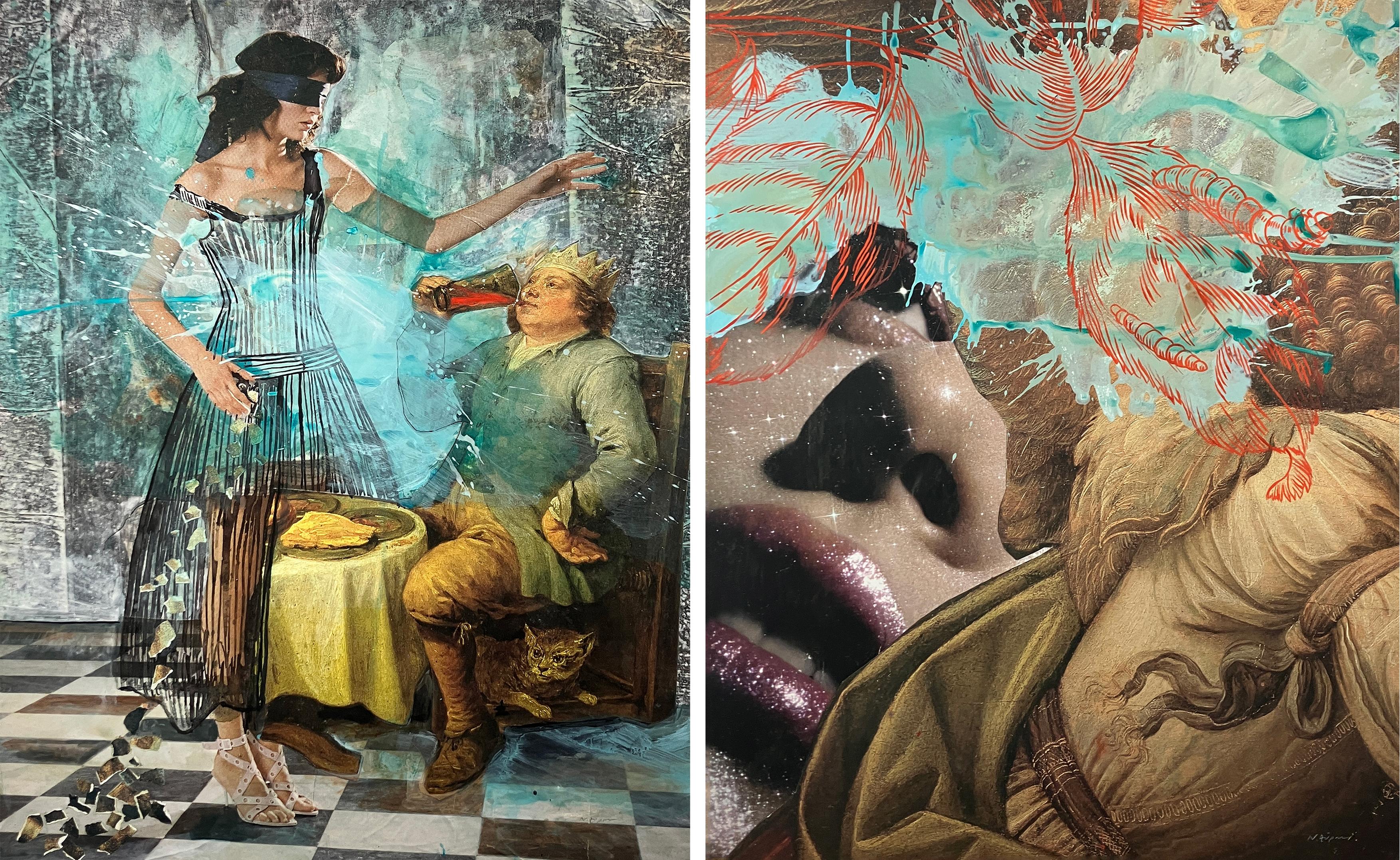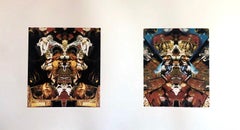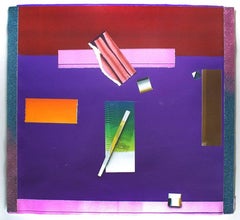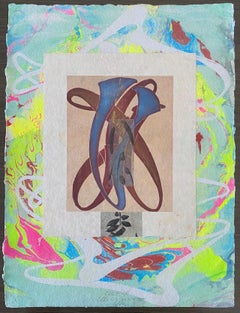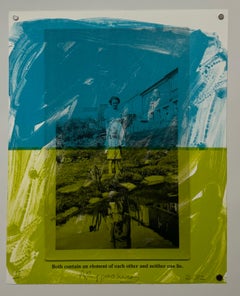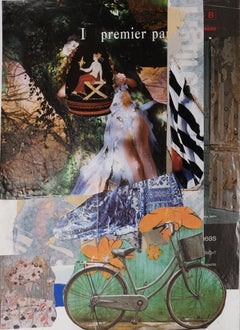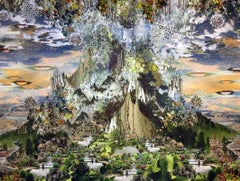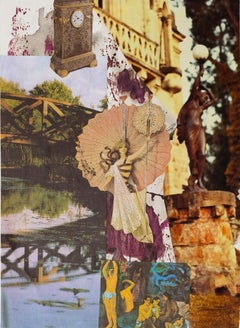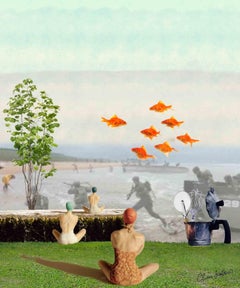Items Similar to Los Angeles Contemporary Digital Collage Fine Art Iris Print Signed ltd ed.
Want more images or videos?
Request additional images or videos from the seller
1 of 10
Anne Marie KarlsenLos Angeles Contemporary Digital Collage Fine Art Iris Print Signed ltd ed.1996
1996
$750
£581.53
€659.85
CA$1,075.09
A$1,169.01
CHF 615.95
MX$14,200.08
NOK 7,743.79
SEK 7,259.18
DKK 4,951.62
About the Item
GATEKEEPER, 1996, color Iris print, signed in pencil, from the numbered edition 35,
This is 5/35 (the picture shows 3/35)
image 9 x 7 ½", full margins, printed & published by Muse X, Los Angeles.
Botanical/Erotic print in the manner of Judy Chicago. A modern feminist take on the female anatomy.
ANNE MARIE KARLSEN received a B.F.A. from Michigan State University and an M.F.A. from the University of Wisconsin. Her work has been featured in exhibitions throughout the United States including the Museum of Fine Arts in Boston, the UCLA Armand Hammer Museum in Los Angeles, the Brooklyn Museum in New York, and the Carnegie Institute Museum of Art in Pittsburgh. Karlsen has completed numerous commissions for libraries, transit stations, cruise lines and municipal buildings. Her public art projects have been recognized as some of the most successful in the United States by the Americans for the Arts Year in Review. Karlsen received the Westside Prize by the Westside Urban Forum for her work on the Santa Monica Boulevard Master Plan for the City of West Hollywood. She teaches at Santa Monica College.
Muse X Editions. An (now defunct) LA based innovative publisher of limited-edition prints, Muse X has launched its first group of prints and is just beginning to make itself known to artists, curators, dealers and collectors. Among works just off the press are otherworldly landscapes by Barbara Kasten and Oliver Wasow, a sizzling sunset by Peter Alexander, abstract compositions by Pauline Stella Sanchez and Jennifer Steinkamp, text and photo combinations by Bill Barminski and Nancy Dwyer, and conceptual photographs by Kevin Hanley. Doug Aitken, Polly Apfelbaum, David Levinthal, Richard Long, Christian Marclay, Alyson Shotz, Uta Barth all have published with them.
- Creator:Anne Marie Karlsen (1952, American)
- Creation Year:1996
- Dimensions:Height: 18 in (45.72 cm)Width: 15.25 in (38.74 cm)
- Movement & Style:
- Period:
- Condition:
- Gallery Location:Surfside, FL
- Reference Number:1stDibs: LU38212139792
About the Seller
4.9
Platinum Seller
Premium sellers with a 4.7+ rating and 24-hour response times
Established in 1995
1stDibs seller since 2014
1,824 sales on 1stDibs
Typical response time: 1 hour
- ShippingRetrieving quote...Shipping from: Surfside, FL
- Return Policy
Authenticity Guarantee
In the unlikely event there’s an issue with an item’s authenticity, contact us within 1 year for a full refund. DetailsMoney-Back Guarantee
If your item is not as described, is damaged in transit, or does not arrive, contact us within 7 days for a full refund. Details24-Hour Cancellation
You have a 24-hour grace period in which to reconsider your purchase, with no questions asked.Vetted Professional Sellers
Our world-class sellers must adhere to strict standards for service and quality, maintaining the integrity of our listings.Price-Match Guarantee
If you find that a seller listed the same item for a lower price elsewhere, we’ll match it.Trusted Global Delivery
Our best-in-class carrier network provides specialized shipping options worldwide, including custom delivery.More From This Seller
View AllLos Angeles Contemporary Digital Kaleidoscope Collage Iris Double Print Proof
By Anne Marie Karlsen
Located in Surfside, FL
Large, untitled, 1996, color Iris print, this one is not signed in pencil, full margins, printed & published by Muse X, Los Angeles.
Karlsen's “Muse X Editions” from 1996 are collages of Renaissance and Medieval art formed into spirals. Much of her artwork resembles this vacuum of collages that draws the viewer in for more. Botanical, Erotic, with catholic imagery print in the manner of David Lachapelle.
ANNE MARIE KARLSEN received a B.F.A. from Michigan State University and an M.F.A. from the University of Wisconsin. Her work has been featured in exhibitions throughout the United States including the Museum of Fine Arts in Boston, the UCLA Armand Hammer Museum in Los Angeles, the Brooklyn Museum in New York, and the Carnegie Institute Museum of Art in Pittsburgh. Karlsen has completed numerous commissions for libraries, transit stations, cruise lines and municipal buildings. Her public art projects have been recognized as some of the most successful in the United States by the Americans for the Arts Year in Review. Much of the artwork that Karlsen displays in public places are mosaic and glass works. In Los Angeles alone, she has 21 public art pieces that get attention on a day-to-day basis, as they are in constantly commuted places, such as the Metro Orange Line at the Nordhoff station, Lawndale Public Library, Santa Monica Place Parking Garage, East Valley Health Center, and Pavilions Market of North Hollywood. Karlsen received the Westside Prize by the Westside Urban Forum for her work on the Santa Monica Boulevard Master Plan for the City of West Hollywood. She teaches at Santa Monica College.
Muse X Editions. An (now defunct) LA based innovative publisher of limited-edition prints, Muse X has launched its first group of prints and is just beginning to make itself known to artists, curators, dealers and collectors. Among works just off the press are otherworldly landscapes by Barbara Kasten and Oliver Wasow...
Category
1990s Contemporary Abstract Prints
Materials
Color
Large Assemblage Collage Monotype California Art from Styria Studios
By Paul Sarkisian
Located in Surfside, FL
Framed in a shadow box. size includes frame. Paul Sarkisian (1928-) is an American artist who made significant contributions during the growth of contemporary art in Los Angeles, th...
Category
1980s 85 New Wave Mixed Media
Materials
Glitter, Mixed Media, Archival Paper
American Artist Handmade Multi Colored Paper With Collage Steven Sorman
By Steven Sorman
Located in Surfside, FL
Steven Sorman was born in Minneapolis, Minnesota in 1948. Internationally known as a painter and printmaker, Sorman earned his Bachelor of Fine Arts degree from University of Minneso...
Category
21st Century and Contemporary Contemporary Prints and Multiples
Materials
Handmade Paper, Monoprint
Conceptual Artist Allen Ruppersberg Hand Printed Lithograph Prints & Photographs
By Allen Ruppersberg
Located in Surfside, FL
Allen Ruppersberg (American, 1944-)
Lithograph, Mixed media
From the Top Ten Historical Similarities (and Differences) Between Prints and Photographs.
This sale is of one print not t...
Category
2010s Conceptual Abstract Photography
Materials
Mixed Media, Lithograph
Geruchte (Rumors, Referring to Persecution of Jews) Original Collage
By Reginald Case
Located in Surfside, FL
Reginald Case (1937-2009)
Geruchte: Rumors, Referring to persecution of Jews
Case continued with contemporary works of Barbie and Madonna (entertainer) that reflected the glamour of...
Category
20th Century Assemblage Mixed Media
Materials
Mixed Media
Mixed Media Abstract Collage
By Alejandra Icaza
Located in Surfside, FL
Genre: Contemporary
Subject: Abstract
Medium: Mixed Media, Collage
Surface: Paper
Country: Spain
Dimensions: 14" x 11"
Dimensions w/Frame: 15" x 12"
Alejandra Icaza Born in Bilbao, Spain in 1966. Lives and works in Madrid. Icaza studied at Saint Martins College in London (1985) and at The New York Studio School of Drawing, Painting and Sculpture in New York...
Category
Late 20th Century Mixed Media
Materials
Mixed Media
You May Also Like
Cecilia Arrospide - COLLAGE VI, Collage 2024
By Cecilia Arrospide
Located in Stamford, CT
Paper Collage
Cecilia studied Social Studies and Literature at Universidad Catolica del Peru, Drawing with Cristina Galvez, and Watercolors with Juan Pastorelli. She then worked wit...
Category
2010s Conceptual Mixed Media
Materials
Paper
Contemporary British Print by Jane Ward - In These Solitudes 3
By Jane Ward
Located in Paris, IDF
Digital print on canvas with dissolved ink and pigments, edition 1/5, 80 x 120 x 3 cm, 2018
Jane Ward is a British artist born in 1960 who lives & works in Lake District National Pa...
Category
2010s Contemporary Figurative Prints
Materials
Ink, Canvas, Pigment, Digital
Cecilia Arrospide - COLLAGE VII, Collage 2024
By Cecilia Arrospide
Located in Stamford, CT
Paper Collage
Cecilia studied Social Studies and Literature at Universidad Catolica del Peru, Drawing with Cristina Galvez, and Watercolors with Juan Pastorelli. She then worked wit...
Category
2010s Conceptual Mixed Media
Materials
Paper
Novaturient - Digital Collage by Chiara Santoro - 2017
Located in Roma, IT
Novaturient is a beautiful print on canvas of a digital collage realized in 2017 by the Italian artist Chiara Santoro.
Edition of 10. Hand-signed and ...
Category
2010s Surrealist Landscape Prints
Materials
Digital
Eternal Recurrence #70 & #63, Enlarged collage photo print intervened by artist
By Natasha Zupan
Located in Miami Beach, FL
Zupan combines images from old masters, alchemical prints, contemporary artists, and bits from magazines and newspapers to create overlapping, intersecting worlds of transparencies a...
Category
2010s Contemporary Mixed Media
Materials
Mixed Media, Acrylic, Photographic Paper, Pen, Color
35 01' 15'' N . 135 45' 13'' E - Digital Collage by Chiara Santoro - 2017
Located in Roma, IT
35 01' 15'' N . 135 45' 13'' E - The work represents the two souls of Japan: that of technological progress combined with secular tradition.
Category
2010s Surrealist More Prints
Materials
Digital
More Ways To Browse
Milton Glaser Signed
Palm Tree Lithograph
Peter Max Sun
Peter Max Sunrise
Peter Storm
Prints Central Park Harold Altman
Ruth Leaf Etching
Samivel Vintage Posters
Samuel Halpert
Tanna Kasimir Hoernes
The Cycles Of Life Salvador Dali
Thomas Mcknight Serigraph
Watanabe Woodcut
Wayne Thiebaud Landscapes
Altman Central Park
Aspen Poster
Aspen Retro Poster
Ben Harman
